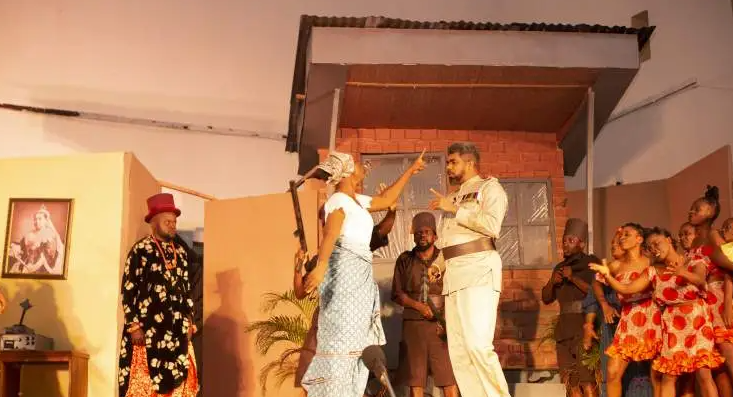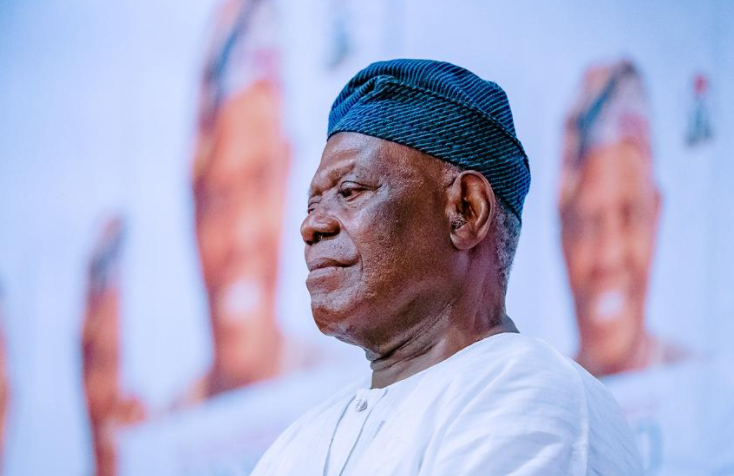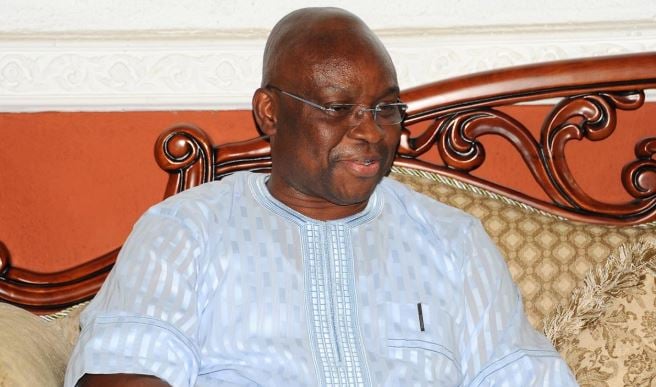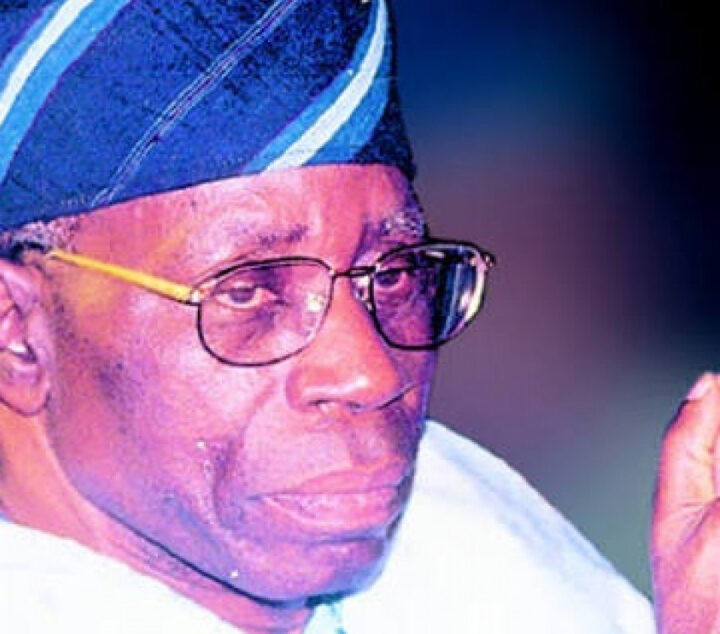About this time 92 years ago, there was palpable tension in a place which is today known as Ikot Abasi, in Akwa Ibom state. The place was then known as Egwanga. The then colonial government came out with what was seen as an obnoxious tax policy. The women protested. They were mowed down in cold blood by agents of the government. Bedlam! Doomsday! Wailing and mourning and gnashing of teeth defined the landscape. Humanity in that clime never saw a hellish moment before; and no more thereafter.
The women had in their rage destroyed the buildings of the native court and part of the staff quarters located in the area. They were protesting the imposition of irregular taxes. The rest is now being told as history. The seed was sown in Owerri province on November 23, 1929. It blossomed and spread to Aba, then to Calabar province, and then to Ikot Abasi where it boiled over. In the afternoon of Sunday, December 15, 1929, the angry women descended on the symbol of the native authority in the area. It’s a story that has been told over and over again in history books, from different perspectives.
In Uyo, on the night of December 23, 2021, the story was relived in song and dance, in a stage play titled ‘Ufok Ibaan – the Ikot Abasi Women’s Uprising’. It was presented by Joseph Edgar, a celebrated artist known as the Duke of Shomolu. The Ibom hall venue of the command performance was aglow as the cast brought alive the experience in front of a live audience which included the immediate past minister of budget and national planning, Udoma Udo Udoma, Akwa Ibom state commissioner for culture and tourism, Orman Esin (who represented the state governor); CEO of SO&U, Udeme Ufot; Uto Ukpanah (representing MTN, one of the main sponsors) and the vice-chancellor of Akwa Ibom State University of Uyo, Nse Essien, The production was well put together. It was electrifying. Udoma called it a really wonderful production.
Incidentally, the Ikot Abasi protest was led by the grandmother of the former minister. She was killed in the process. Udoma never met the woman, but he heard enough stories about her to make him proud of his heritage. During the presentation, which he was the special guest, the former minister in his speech, told the story of his grandmother and the event the led to her death. In one night, the 1929 protest was showcased in two forms – story and drama. The Duke of Shomolu and his cast acted the drama; but this is the story, as told by Udoma: “As you all know Madam Adiaha-Edem, the leader of the Ikot Abasi women protesters was my paternal grandmother. She was a very successful trader and community leader. As a big trader, she was a wholesale distributor of products such as bar soap, salt, detergents, stockfish, and kerosene. Her traded volumes were so large that, to guarantee her supply, she used to deposit large sums of money with such big trading outfits as G.B. Ollivant Limited and African Traders Corporation. She also had a big market stall and was a seamstress. A very enterprising woman indeed!”
Advertisement
“But not only was she successful, she was also independent minded. She did not mind going against local norms once she was convinced about something. That was how she converted to Christianity, a few years after my father was born. She became such a strong Christian that she even tried to convert her husband, my grandfather. But my grandfather was adamant that as a leading and highly respected figure in the society, and as a custodian of the culture and traditions, he could not abandon the beliefs of his ancestors! This caused tremendous stress in their marriage and led, ultimately, to a divorce.
“She was a truly remarkable woman. Unfortunately, since she was killed in 1929, and I was born in 1954, I never met her. I don’t even know what she looked like because in 1929 our people had not yet developed the practice of taking studio photographs of themselves. However, as a young boy, I heard stories of what happened to my grandmother. I used to marvel at her bravery and courage and that of all the women who accompanied her in confronting the British colonial administration.”
After painting a picture of the life and times of his grandmother, Udoma gave a narration of what came to be referred as the Ikot Abasi women’s War: “The immediate cause of the protest was the introduction of direct taxation, which the women understood was going to be extended to trading and other activities, principally carried on by women. Whilst the introduction of direct taxation in 1929 was resented by all, it was the women who were adamant that they were not going to pay any such taxes”.
Advertisement
“Many of the women were, like my grandmother, traders, and they travelled around and had extensive connections. The first protests erupted in Oloko in Owerri Province on November 23, 1929. It spread quickly to Aba and certain parts of Calabar province. But it was in Egwanga, now called Ikot Abasi, that the protests came to a head. In the afternoon of Sunday, December 15, 1929, the angry women destroyed the buildings of the native court and part of the staff quarters.
“The next day, Monday, December 16, the women were invited to meet with the district officer, A. R. Whitman. Even though some of the women were reluctant, my grandmother, as their leader, convinced them to go. She reckoned that change could only come after engagement and negotiation. She led the women leaders to meet with Whitman and presented him with a list of seven demands – the most prominent was a commitment from the government not to tax women. A Nigerian female lawyer, Nkoyo Isikalu, who has commented on this, has referred to these demands as Nigeria’s first bill of rights!
“Just after the document had been typed, signed and distributed, more women arrived, and a crowd surged towards the office breaking through the stick fence. Even though the women were unarmed, Whitman lost his nerve and ordered the soldiers to open fire. A Captain Hill, who commanded the troops, was the first to fire. He brought out his pistol and shot my grandmother at point blank range. She died on the spot. The other soldiers fired their rifles straight at the women and twenty-five women were killed outright. More women were killed in the ensuing stampede.
“There was palpable shock that unarmed women who were simply protesting against government policy could have been mowed down in this manner. My father, who was then just 12 years old, was invited to the scene by the British to identify the body of his dead mother. He was inconsolable and was traumatised by that incident. The whole community was in shock. How could this have happened to some of the leading women in the community who were simply exercising their rights of protests!
Advertisement
“The government immediately deployed more troops to Ikot Abasi and announced the setting up of a commission of inquiry headed by Donald Kingdom. As to be expected, in its report, the commission described it as a mob action directed at overthrowing the colonial administration and justified the action of the district officer.
“However, the women’s war had a tremendous impact on the subsequent development of women in the region, and on the colonial administration itself. A number of administrative reforms were introduced in the years following the protests. And, even more importantly, the British starting being careful to undertake extensive consultations before introducing any new measures or initiatives. Therefore, whilst it came at a heavy price, the protests succeeded in changing colonial government policy – which is what the women wanted. And, thereafter, the colonial government would be extremely careful about imposing taxes on any activities principally carried out by women!
“Even our men folk were amazed at how radical the women were in organising these protests and started respecting much more the voice of women, and seeking their views on important matters. As an example, the Ibibio Union, which up till that time was an all-male association, immediately introduced a women’s wing!”
An obviously elated Udoma paid glowing tribute to the women of the time and was appreciative of the initiative of Edgar in retelling the story, in song and dance. “The story of the Ikot Abasi Women’s protest is a reminder that many of our ancestors exhibited great courage in the face of the superior armaments of the British colonisers,” he said. In particular, he pointed out that it was a reminder of the great sacrifices that women have made building the country that we have today. In recognition and appreciation, he called on all the men in the hall to rise and salute the Nigerian woman. He was there with his siblings, home and abroad.
Advertisement
The stage play was written and directed by William Benson and attracted a number of sponsors including Ibom Air, Akwa Ibom state government, Ibom Icon, MTN, Anchor Insurance, Zenith Bank, Access Bank and Wema Bank. Related events continued on the December 24 and 25.
Advertisement
Views expressed by contributors are strictly personal and not of TheCable.
Add a comment







